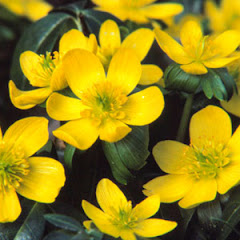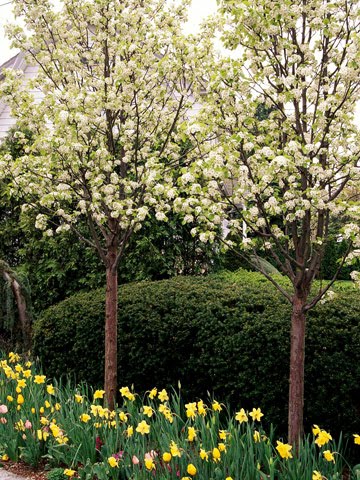
Composting Leaves
From The Dallas Morning News: As fall heads toward winter, autumn leaves cover lawns, sidewalks and landscape beds. Most homeowners rake them into piles and stuff them into 30-gallon plastic bags, effectively throwing away a beneficial and free resource for the garden. Don't bag them and ship them to the landfill. Leaves make excellent compost, the foundation of a beautiful garden bed.
Compost is organic matter that has decomposed. Compost adds nutrients to the soil or turf, makes heavy clay soil easier to work and can be used as mulch to protect plants from cold in winter and to retain moisture in summer.
There are simple ways to compost with leaves:
- Trench composting is what it sounds like: You dig a trench or trenches at least 8 to 10 inches wide and 1 foot deep. Fill the trenches with shredded leaves. Add some manure or a cup of fertilizer to speed the decomposition. Pile the dirt you dug from the trench on top of the leaves, and next season you'll have a raised garden bed.
This method is ideal for vegetable gardens, which are generally planted in rows. In addition, you might dig a trench where you planted crops last year to make a new compost trench. If you do that each year, eventually you will have turned over all the soil in your garden, which improves the soil and, perhaps, your harvest.
trench compost: year three
- Walkway composting. Lay a thick layer of leaves, shredded or not, between the rows of a raised garden bed. You have created a walkway that will gradually decompose. As it compacts, add more leaves. In a matter of months, the leaves (if shredded) will have decomposed enough to mix into your garden soil.
- Sheet composting. Simply till a few inches of leaves into the garden bed in fall. Add a bit of fertilizer. By spring, the leaves will have decomposed nicely. If you have lots of leaves, repeat the process periodically during fall and winter. Sheet composting would be especially useful for homeowners with a tiller but no method of shredding leaves.

Texas Cooperative Extension horticulturists say leaves may take five months to two years to compost. You can speed the process by mixing in high-nitrogen organic materials, such as manure or grass clippings, or adding a little fertilizer.
Shredding the leaves also speeds up the process. The easiest way to shred leaves is to attach the collection bag to your lawnmower, then mow the leaves. Mulching mowers work the best, but regular mowers will do the job.
If all this still sounds like too much work, there remains the ultimate lazy gardener's method: Throw the leaves in a big pile. Pile on some dirt or mulch. Water. If extremely ambitious, turn the pile every month or so with a pitchfork or similar garden tool.
source: The Dallas Morning News, "Fall is a good time to begin composting leaves, " by
Rick Rosen, Friday, November 23, 2007.
















No comments:
Post a Comment